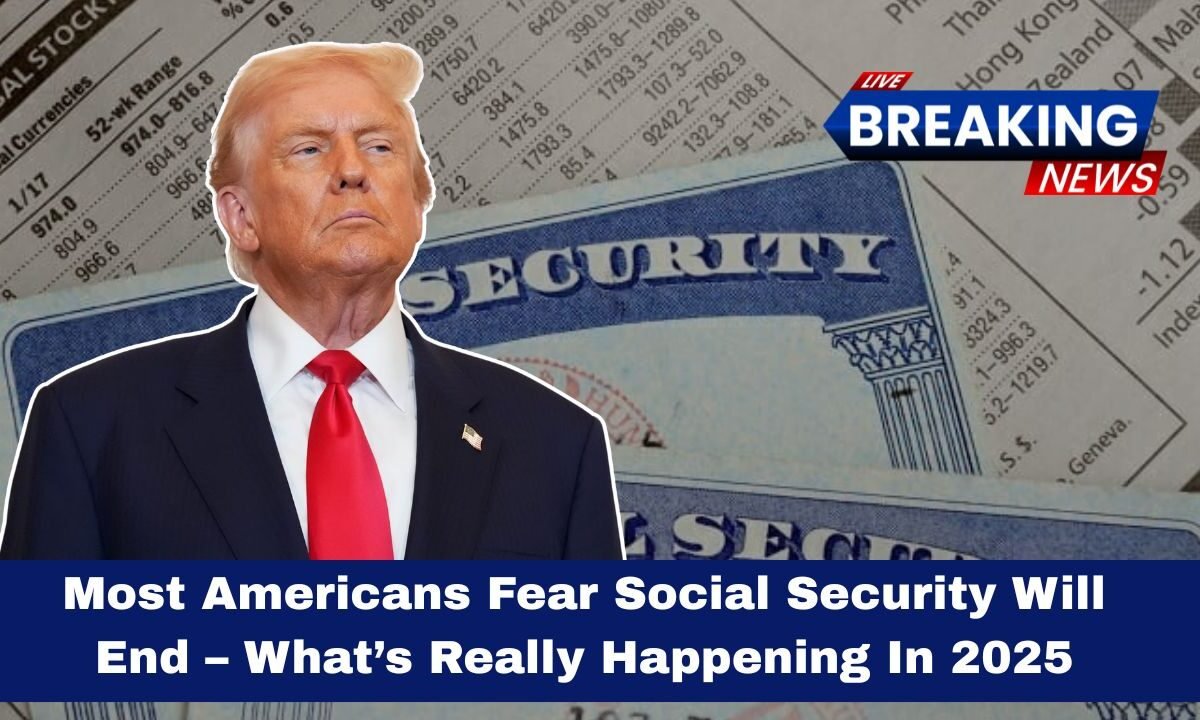Many Americans today are worried about Social Security — the main program that supports people when they retire.
A new national survey shows that three out of every four workers believe Social Security may not be there when they finally stop working. But how true is that fear? Let’s break it down.
Rising Fear About Social Security’s Future
According to a Bankrate survey released on October 22, 2025, about 76% of American workers and 80% of retirees fear their promised Social Security benefits won’t last. These numbers are higher than last year, when 73% of workers and 71% of retirees felt the same way.
Experts say the concern is understandable. Studies predict that Social Security funds may run short by 2034, meaning the program might only be able to pay about 81% of full retirement benefits unless Congress takes action.
This growing fear is pushing many Americans to think differently about their retirement plans.
Why Are People Losing Faith in Social Security?
The Social Security Administration (SSA) has faced several issues in recent years — from staff cuts and policy changes to leadership shifts. In addition, recent statements by former President Donald Trump questioning the agency’s integrity have made many Americans nervous.
In a speech to Congress earlier this year, he spoke about “incompetence and possible fraud” inside the SSA. Some lawmakers even fear that there might be an attempt to privatize Social Security, turning it into a private investment system rather than a public safety net.
An AARP survey found that only 36% of Americans are confident about Social Security’s future — a drop from 43% in 2020. This falling trust is clear evidence that people are deeply concerned.
More Americans Are Claiming Benefits Early
Out of fear that benefits might disappear, more people are choosing to claim Social Security early. A recent report showed that one in four Americans aged 62–66 have either started taking benefits early or plan to do so soon.
Here’s a quick look at the trend:
| Year | New Benefit Claims | Change Compared to Previous Year |
|---|---|---|
| 2024 | 1.2 million | — |
| 2025 (Jan–Aug) | 1.7 million | +15% increase |
Experts say claiming early is not always the best move. Although you can start benefits at age 62, waiting longer increases your monthly check — up to age 70, when you can receive the maximum amount.
Most economists agree that people who live long enough gain more money by waiting.
How Much Do Americans Depend on Social Security?
Social Security is a lifeline for millions. In the same Bankrate survey of 2,466 adults, 52% of workers said they expect to depend on these payments after retirement, while 78% of retirees already rely on them.
The AARP notes that the number of retirees relying “substantially” on Social Security has grown from 51% in 2005 to 65% in 2025. Clearly, this program remains essential for retirement security.
Can Congress Fix Social Security Before It’s Too Late?
Experts believe Congress must act soon to keep the system solvent. Some possible solutions include:
- Raising payroll taxes to collect more money for the trust fund.
- Increasing the retirement age so people wait longer before claiming.
- Borrowing funds temporarily to cover the shortfall.
Still, opinions are divided. Some experts, like Emily Ekins from the Cato Institute, believe Congress will act to prevent benefit cuts. Others, like Mark Hamrick from Bankrate, remain skeptical, saying there’s been little progress or urgency.
Either way, time is running out. If no action is taken, millions of retirees could face smaller checks by 2034.
The fear around Social Security’s future isn’t just rumor — it’s based on real financial challenges. However, that doesn’t mean the system will disappear.
Congress has options to fix the issue, but quick decisions are needed to restore confidence among Americans. Until then, it’s wise for individuals to plan carefully for retirement and stay informed about upcoming policy changes.
FAQs
Will Social Security really run out of money?
No, but after 2034, it may only have enough funds to pay about 81% of promised benefits unless changes are made.
Should I claim Social Security early?
Not always. Claiming early reduces your monthly payment, while waiting until 70 gives you the highest benefit.
Can Congress fix the problem?
Yes. Lawmakers could raise taxes, adjust the retirement age, or find new funding sources to protect future benefits.




